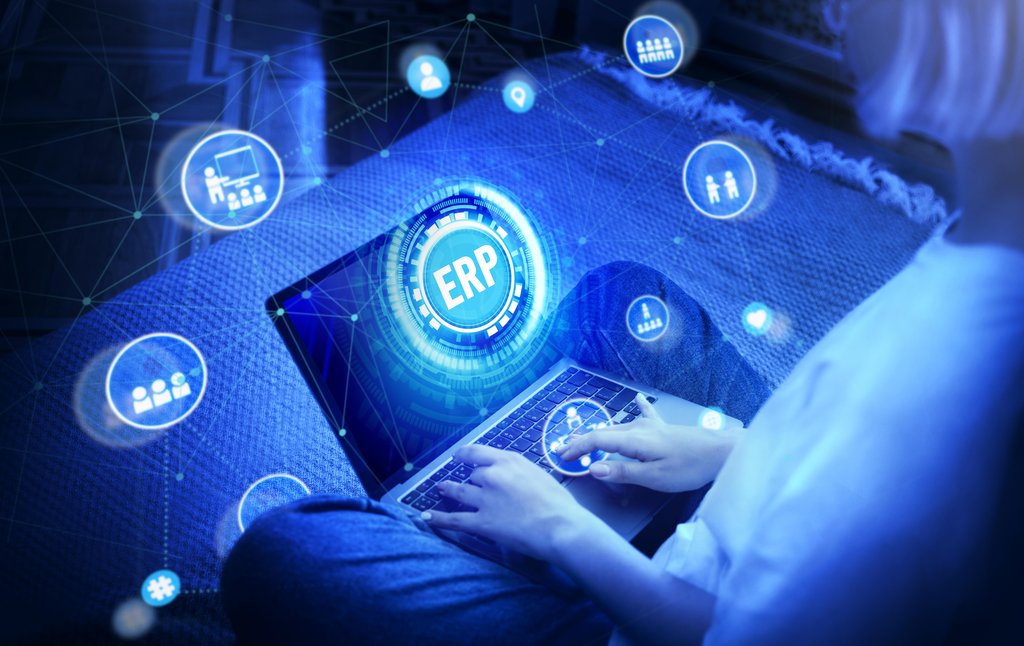ERP's Function in Omnichannel Retail Achievement

In today’s fast-paced, digitally-driven retail environment, customers expect seamless shopping experiences across all touchpoints—whether they’re browsing in-store, shopping online, or placing orders through mobile apps. This interconnected retail model, known as omnichannel retail, demands a high level of operational efficiency, data consistency, and customer-centricity. To meet these challenges, Enterprise Resource Planning (ERP) systems have become a cornerstone of successful omnichannel strategies.
Understanding Omnichannel Retail
Omnichannel retail goes beyond having a presence on multiple sales channels. It’s about creating a unified and consistent experience for customers across all platforms. For instance, a customer might discover a product on Instagram, check its availability in a nearby store, purchase it online, and choose in-store pickup—all while expecting real-time updates and seamless service.
This level of integration requires centralized data, real-time inventory visibility, synchronized order management, and unified customer information. That’s where an ERP system steps in.
How ERP Powers Omnichannel Success
1. Centralized Data Management
An ERP system creates a single source of truth by combining data from several departments, including sales, inventory, finance, procurement, CRM, and more. This eliminates data silos and ensures that every channel accesses up-to-date information. Retailers can manage product catalogs, pricing, and promotions consistently across all platforms, enhancing the customer experience and reducing operational confusion.
2. Real-Time Inventory Visibility
Real-time inventory tracking is critical in omnichannel retail. An ERP solution allows businesses to track stock levels across warehouses, stores, and online channels. This ensures:
- Accurate stock availability for customers
- Prevention of overselling or stockouts
- Smarter replenishment and inventory planning
With accurate inventory data, customers can confidently buy online and pick up in-store, or request home delivery from a nearby outlet.
3. Streamlined Order Management
ERP systems enable order orchestration across multiple channels, handling order capture, fulfillment, shipping, and returns seamlessly. Whether a customer orders online or in-store, the ERP system ensures efficient processing and tracking:
- Assigns the best fulfillment center
- Automates shipping and delivery schedules
- Handles partial shipments or split orders
- Manages return logistics
This flexibility is essential for providing fast and reliable delivery—one of the key expectations of today’s omnichannel shoppers.
4. Enhanced Customer Experience
With ERP-integrated CRM modules, retailers can consolidate customer data across touchpoints—purchase history, preferences, and interaction logs—enabling:
- Personalized marketing and offers
- Faster, informed customer service
- Consistent engagement regardless of channel
This unified view helps retailers build loyalty and deliver a customer-first experience.
5. Accurate Financial Reporting
An ERP system connects transactions from every sales channel to backend finance and accounting modules. This means:
- Real-time revenue tracking
- Automated tax calculations
- Simplified reconciliation and reporting
With a clear financial picture, decision-makers can assess channel performance and profitability more effectively.
6. Scalability and Agility
As retailers expand to new platforms, geographies, or product lines, ERP systems provide the flexibility and scalability needed to manage growth. They support:
- Multi-location and multi-currency operations
- Integration with third-party tools (e.g., eCommerce platforms)
- Custom workflows and automation
This agility is essential in a rapidly evolving retail landscape.
Conclusion
In the age of omnichannel retail, success depends on more than just being present on multiple platforms. It requires a cohesive strategy supported by intelligent systems that keep operations synchronized and customer experiences seamless. An ERP system plays a pivotal role in enabling this transformation by offering real-time data, automation, and end-to-end visibility.
For retailers striving to stay competitive and customer-focused, investing in a robust ERP system is not just a technology upgrade—it’s a strategic necessity.
Sources - Company Research, Internet



